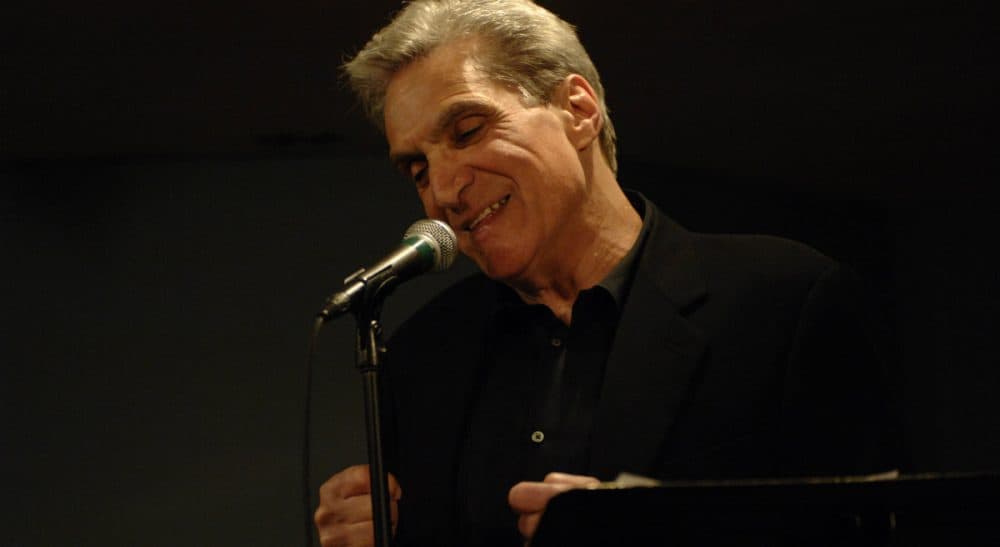Advertisement
Robert Pinsky: Poetry Will Outlive Status Updates, Tweets — Even The Web Itself

April is National Poetry Month. It is also, apparently, National Pecan Month and National Welding Month. But the increasingly common practice of claiming months to spread awareness doesn't deter poetry enthusiasts. They claim whatever they can do to get people thinking and talking about the age-old art form is a worthy endeavor.
To that end — and in honor of National Poetry Month — on Monday, March 31, at 7 p.m., Mass Poetry will host an event celebrating the connection between poetry and leadership. The event is co-sponsored by Robert Pinsky’s Favorite Poem Project and will include poetry readings and reflections from prominent local leaders — including Governor Deval Patrick and former Boston police commissioner Edward Davis. All proceeds from this event will help expand youth poetry programs, bring poetry to public spaces throughout Greater Boston and support the new Poetry on the MBTA project.
Cognoscenti had the chance to speak with Robert Pinsky about the event — as well as about the role of poetry in schools, and in the modern world.
The event is called “An Evening of Inspired Leadership.” What is the connection between leadership and poetry?
Poetry, by its nature, is on a human scale: the medium is one person’s voice. That sense of respect for the individual, built into the nature of the art, has the potential to temper, as well as inspire, leadership.
You've done a lot over the years to bring poetry into the public consciousness. Have you seen poetry gain a more prominent place in mainstream culture? Or is it in decline as many have speculated?
I don’t think of myself — if you’ll pardon a distinction that might seem fussy — as “bringing poetry into the public consciousness.” Promotion doesn’t interest me, and poetry is too large and fundamental for such a thing. Art made of the sounds of words is basic. As far as I know it is part of all cultures. It helps people memorize the Quran and other texts, for example. I think of myself as encouraging those who love the art, and helping make it available.
In an age of tweets and status updates, do people still have the patience for poetry? What do you see as its future?
Poetry is a pleasure. It is compact and fast. It can pack emotion into the space of one breath. It has outlived monarchies, empires, corporations, news-magazines and many another things. It will outlive the terms “tweet” and “status update” for sure. It lives on the Web, quite vigorously — take a look at the videos here. And it will outlive the term “the Web,” too.
Are we doing enough to foster an appreciation of poetry in schools?
Disastrously, riskily, in a way that menaces our democratic enterprise, our schools have to struggle to support all arts, not just poetry. Art, for thousands of years, in many cultures, has been part of a ruling class education. If the ruling class in a democracy is all the people, then if we neglect art we bring a curse on ourselves.
With the anniversary of the Marathon bombing coming up, a lot of people are trying to gather their thoughts and feelings about the events of the past year. You wrote a poem called “Our F* * * * * *g City.” Can you talk a little about your writing about the Marathon?
A demotic, idiomatic, irreverent expression is at the center of that poem.
More information about "An Evening Of Inspired Leadership" can be found here.